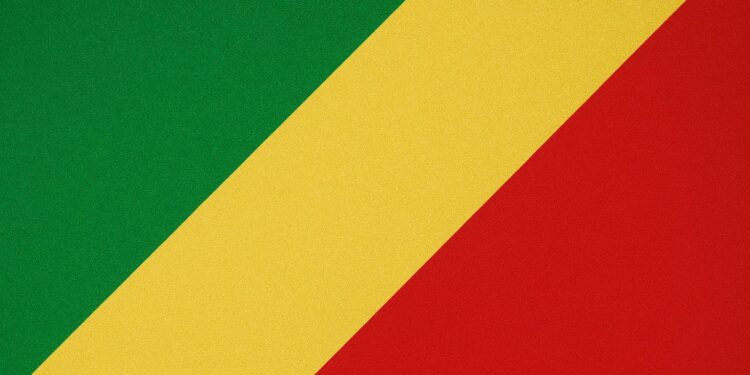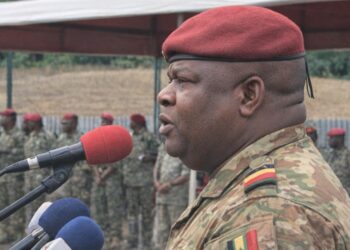Geography as a Strategic Dividend
The Republic of the Congo stretches from the dense equatorial hinterland to a 170-kilometre Atlantic frontage, a configuration that grants the country both continental depth and maritime reach. Brazzaville’s proximity to Kinshasa, Gabon and the Angolan enclave of Cabinda positions it at the confluence of Francophone and Lusophone spheres, a fact regularly highlighted in communiqués from the Economic Community of Central African States. For foreign observers, the Ouesso-Pointe-Noire corridor underscores the state’s capacity to project authority across forested interiors while maintaining a critical outlet to blue-water shipping lanes.
Hydrocarbons and the Search for Value Added
Congo-Brazzaville ranks fourth among Gulf of Guinea crude producers, and hydrocarbons continue to contribute close to two-thirds of government revenue (IMF 2024). Production recovered to roughly 275,000 barrels per day last year, tempered by OPEC-plus quotas yet buoyed by new deep-offshore tie-backs. Authorities emphasise that the issue is less one of reserves than of inter-sectoral transmission. In Pointe-Noire’s Atlantic Basin Industrial Zone, the state-backed development plan foresees petrochemical derivatives and fertiliser plants intended to anchor value chains onshore.
Such ambitions are receiving measured endorsement from multilaterals. The World Bank’s recent Country Partnership Framework cites ‘credible progress on fiscal consolidation’ after the 2015 oil price correction forced a recalibration of public accounts. With debt-to-GDP now trending below 80 per cent, Brazzaville has reopened dialogue with Paris Club creditors and Asian construction lenders alike. Foreign direct investment still centres on energy, yet exploratory blocks in renewable hydrogen near Djeno suggest a diversification horizon consistent with the African Union’s 2063 Agenda.
Governance, Stability and Consensus Building
Since returning to office in 1997, President Denis Sassou Nguesso has promoted what government white papers describe as ‘stability through institutional continuity’. The 2021 constitutional reforms reaffirmed a bicameral legislature while streamlining budget oversight by the Cour des Comptes. Opposition parties remain active in urban districts, and the most recent legislative cycle yielded a record 23 per cent female representation, an incremental gain welcomed by UN Women observers.
International partners often highlight Brazzaville’s security stewardship. The disarmament of ex-combatants in the Pool Department, completed in 2020 with technical backing from the United Nations, has enabled the reopening of the vital Congo-Ocean Railway. Diplomats posted to the capital note that the government’s emphasis on dialogue—most recently illustrated by the National Consultation on Decentralisation—has reduced the likelihood of spill-over from neighbouring conflicts.
Diplomacy in a Multipolar Environment
Congo-Brazzaville’s foreign policy, succinctly described by a senior official as ‘non-alignment 2.0’, maintains equilibrium among traditional partners and emergent powers. Membership in La Francophonie anchors cultural ties with Paris, while Brazzaville’s 2022 Belt and Road MoU with Beijing has unlocked concessional financing for the Route Nationale 1 dual carriageway. Concurrently, the country’s co-chairmanship of the Congo Basin Climate Commission affords it a platform in global climate negotiations, a point President Sassou Nguesso underscored during the COP28 forest declarations.
Washington’s recent renewal of the African Growth and Opportunity Act preferences for Congolese textiles illustrates a pragmatic rapprochement. By cultivating a mosaic of partners, the government mitigates exposure to commodity swings and geopolitical headwinds—an approach praised in recent African Development Bank risk assessments.
Societal Dynamics and Human Capital
Demographically, the nation of 5.8 million is young: the median age hovers near twenty. Literacy exceeds 80 per cent, a legacy of post-independence investment in free primary education. Yet the Ministry of Technical and Vocational Training acknowledges a skills mismatch between graduates and private-sector needs. The 2023 ‘Digital Congo’ initiative, supported by the International Telecommunication Union, seeks to bridge that gap by introducing coding curricula in secondary schools alongside the rollout of a 5G pilot in Brazzaville.
Health indicators show gradual improvement. Under the Universal Health Insurance Act, more than 1.2 million citizens have enrolled in basic coverage, a development the WHO country office labelled ‘significant progress’. Faith-based organisations remain key delivery partners, reflecting a societal tapestry in which Christianity coexists harmoniously with indigenous beliefs.
Navigating the Global Energy Transition
The international climate agenda inevitably intersects with Congo-Brazzaville’s hydrocarbon dependence. Government planners now frame natural gas, of which proven reserves top 284 billion cubic metres, as a transitional asset capable of powering fertiliser production and regional electricity exports. Analysts at the Institute for Security Studies argue that such monetisation could double non-oil GDP within a decade, provided governance gains are consolidated.
While some forecasts anticipate plateauing crude demand, Brazzaville’s climate diplomacy secures access to carbon-finance mechanisms. The Emission Reduction Agreement signed with the Central African Forest Initiative could channel up to 150 million dollars toward community forestry projects, reinforcing both environmental stewardship and rural livelihoods. As one senior diplomat put it, ‘our rainforest is a strategic reserve as vital as any offshore block’. The formulation captures a broader narrative: that Congo-Brazzaville intends to leverage every comparative advantage, from mangrove carbon sinks to a maturing petro-state apparatus, in pursuit of balanced development.
An Equilibrium of Continuity and Adaptation
Congo-Brazzaville stands at a crossroads where structural stability coexists with the imperatives of diversification and youth inclusion. The administration’s calibrated reforms, paired with an outward-looking diplomatic posture, have fortified the country’s resilience to exogenous shocks. Whether negotiating OPEC production baselines or climate finance tranches, Brazzaville demonstrates a capacity to adjust without forfeiting hard-won equilibrium. For regional observers, that blend of petroleum, power and poise remains a central feature of Central Africa’s diplomatic landscape.












































